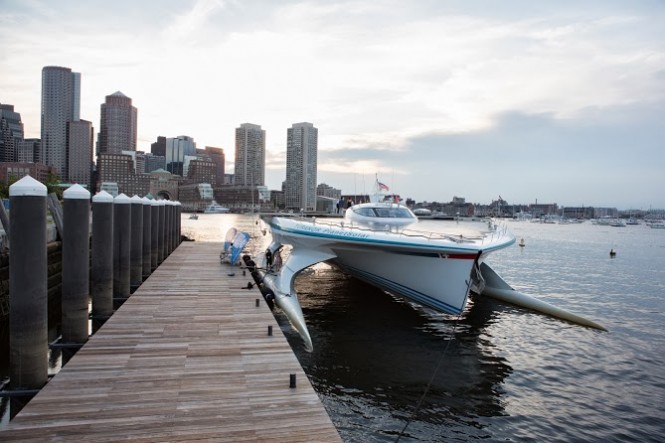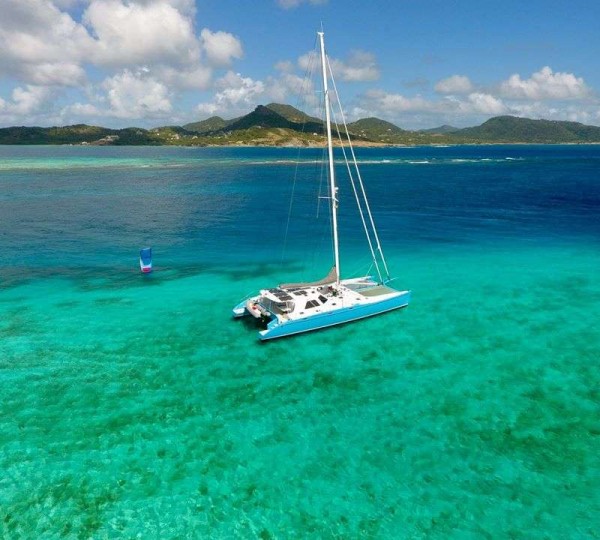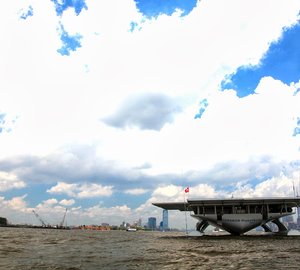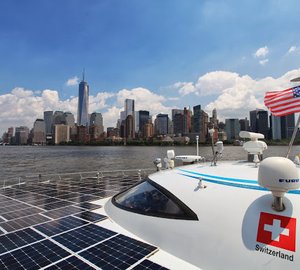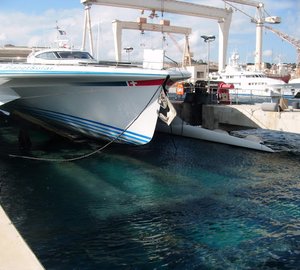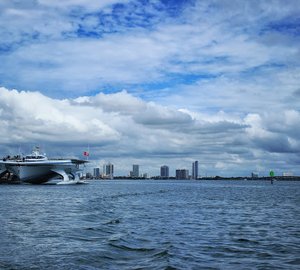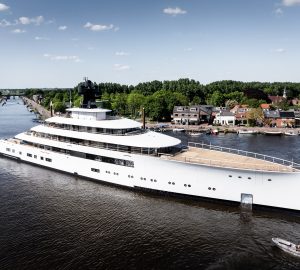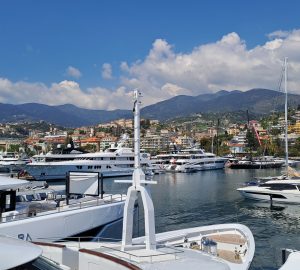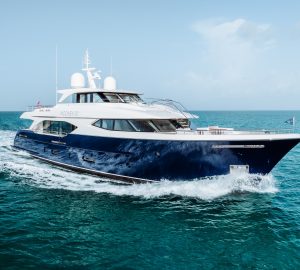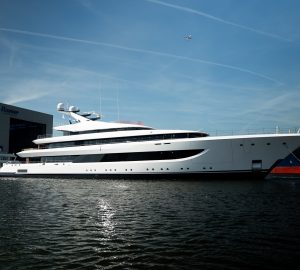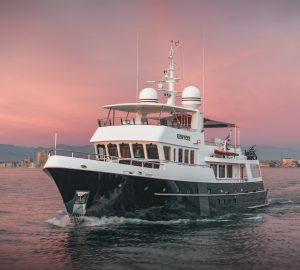Following a couple of days of waiting for better weather, the MS Tûranor Planet Solar, the world’s largest solar boat, left the city of Boston, hosting 3 scientific team members from the University of Geneva (UNIGE), as well as a researcher from the Woods Hole Oceanographic Institution, the largest center of its kind in the world, with whom UNIGE is partnering for this expedition.
This important stopover in the capital of Massachusetts was crucial in the planning of the “DeepWater” expedition’s itinerary, which had initially planned for a stop in Iceland, a transatlantic crossing in the direction of Norway, coming to a close in Paris.
After many discussions, hesitations and negotiations, the scientific committee—headed by Professor Martin Beniston and PlanetSolar’s captain Gérard d’Aboville—made the strategic decision to adjust the “DeepWater” expedition’s itinerary. The boat will not sail to Iceland; the measurement campaign will concentrate on the ocean eddies located between Boston and St. John’s (Canada). An additional stopover has therefore been added before St. John’s: Halifax (Canada).
“Although the days are still long around Iceland in mid-August, the low angle of the sun relative to the boat’s photovoltaic panels would compromise the optimal acquisition of solar radiation. These sunlight conditions and the bleak weather forecasts for the rest of the summer prevented us from being able to guarantee a precise arrival date, which poses a number of logistical problems with regard to the scientific team members’ rotation” says Gérard d’Aboville.
The MS Tûranor left the Mediterranean about three weeks later than planned. The weather conditions were extremely poor this past spring, delaying the boat’s departure from the shipyard where she had been docked for major maintenance and optimizations.
“The new navigation plan will enable us to concentrate more on the region of ocean eddies—large vortices that break off from the main part of the Gulf Stream. These phenomena influence heat exchanges with the atmosphere as well as the growth of phytoplankton where the powerful current leaves the east coast of the United States” says Professor Martin Beniston.
“This new itinerary is an opportunity for our research. In fact, our route will follow a series of zigzags that enter and exit the Gulf Stream while intercepting several ocean eddies. This is the area where we expect to find the most interesting scientific results” he says.
The solar catamaran is leaving Boston today, a stopover that was given a positive assessment by PlanetSolar and UNIGE thanks to the involvement of the public and of important institutions such as the Boston Children’s Museum, the Boston Science Museum, the MIT Energy Club, and the Woods Hole Oceanographic Institution.
The “PlanetSolar DeepWater” Scientific Expedition
Launched in Florida in early June, the “PlanetSolar DeepWater” expedition will strive to collect a continuous series of physical and biological measurements along the Gulf Stream, both in the water and in the air, using advanced instruments and the expertise of the UNIGE scientists.
Led by Professor Martin Beniston, climatologist and director of the Institute of Environmental Science at UNIGE, the research team will study the key parameters of climate regulation, namely aerosols and phytoplankton, in order to better understand the complex interactions between the ocean and the atmosphere, as well as the role these interactions play in climate change.

